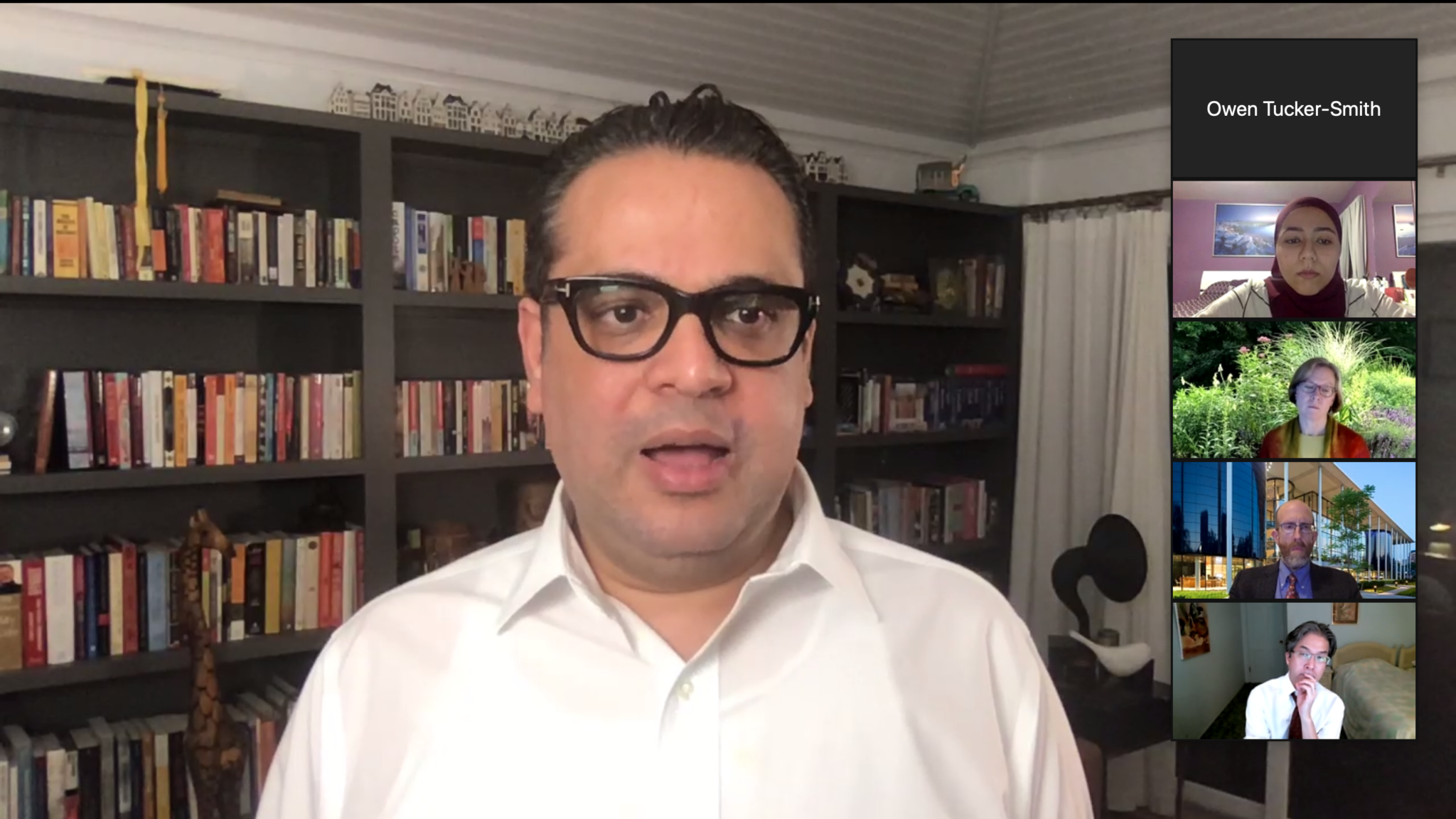
Owen Tucker-Smith, Contributing Photographer
On Nov. 16, Yale public health experts told a Zoom room of over 40 students and community members that the University’s response to COVID-19 has worked “amazingly well” this semester, offering reflections on lessons learned and plans moving forward.
The panel, titled “Panel and Q&A with Public Health Experts,” was co-hosted by Yale College Council, Dwight Hall, the Center for Public Service and Social Justice and the Yale International Relations Association. Panelists included Dr. Howard Forman, director of the Health Care Management Program at the Yale School of Public Health, Dr. Saad Omer, director of the Yale Institute for Global Health, Dr. Madeline Wilson, chair of the Yale COVID-19 Testing and Tracing Committee, and Dr. Albert Ko, chair of the epidemiology of microbial diseases department. The panel session included a series of prepared questions as well as an open question-and-answer period and was open to anyone from the Yale community.
“We moved forward and we opened the doors, and looking back, I can’t think of any one particular thing that I would do differently,” Wilson told attendees. “We’re all in a difficult place right now with this epidemic raging around us. But even though we have experienced a few outbreaks on campus, they’ve been fairly rapidly contained. There have been lessons learned, but the semester has gone amazingly well.”
Wilson gave a brief run-down of how she and her committee have handled the pandemic. She noted that most important decisions the committee made this semester were decided before much information regarding how COVID-19 worked was available and that students right now are experiencing the impact of decisions made in July.
What the committee did decide at that time, she noted, was to prioritize how to stop the spread of the virus in the residential colleges.
“We thought that if we could reduce the risk in those colleges, we could reduce the risk to the rest of the campus community, and to employee members that are more vulnerable than you are,” she said. “That was the core of our testing strategy which you all are living the dream of today.”
According to Ko, one of the greatest lessons he learned has been that proactivity works better than reactivity. He also cited standard procedures — mask-wearing and social distancing — as precautions reaffirmed to be effective by how well the semester went. He noted that the precautions and procedures used by Yale have spread to the entire state of Connecticut.
Foreman noted that right now, a newly important priority will be preparing for the possibility of a spring vaccine.
This past week, two pharmaceutical companies — Moderna and Pfizer — announced preliminary results from vaccine testing that showed over 90 percent success rates for the vaccine candidates. Foreman said Yale, New Haven and Connecticut need to concentrate on how to make a vaccine accessible to community members.
“As of today, we may be on the cusp of having two very effective vaccines,” he said. “The timeline to distribute a highly effective vaccine moves up from being at the end of next semester to before the spring is even fully underway. That’s probably the biggest issue that’s coming up, and that’s a place where Yale can be a leader. You can have the most effective vaccination in the world, but without an effective vaccination program, they’re practically worthless.”
Also in regard to spring plans, Wilson shared that the semester will utilize the same procedures as the fall.
She said that while it can be tempting to take advantage of new viral testing technologies, she thought stability would be most valuable to the Yale community. According to Wilson, Yale will continue to use the nose-swab method used this semester in the spring.
“Our plan for the spring is to have the same testing infrastructure that we do now, to have the same testing frequency, to work with the same lab, and to work with the same COVID test that we have been, because it’s been successful,” she said. “We’ve built a pretty substantial infrastructure. We have an efficient system, we have a system that people feel comfortable with. It will be easy for you to step back into this rhythm of testing.”
Pfizer has a clinical research unit in New Haven.
Owen Tucker-Smith | owen.tucker-smith@yale.edu







